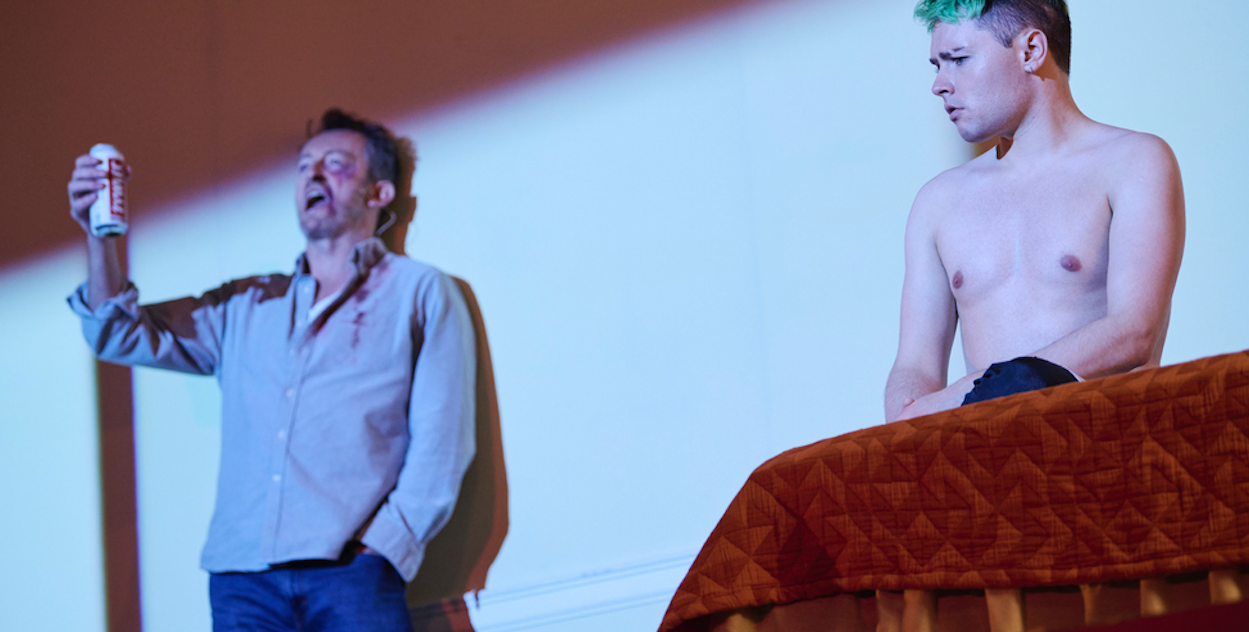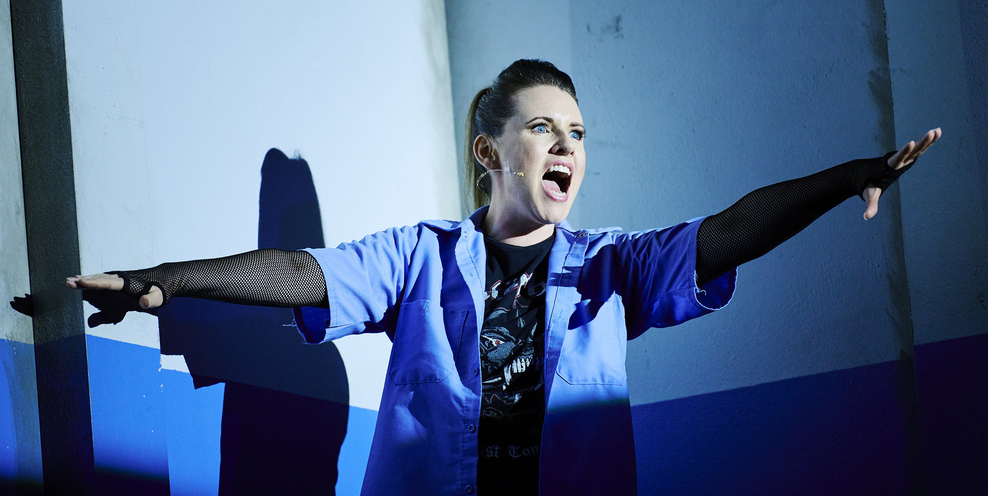- Culture
- 02 Oct 24

With her acclaimed double bill Trade / Mary Motorhead set for a nationwide tour, Irish composer Emma O’Halloran tells us about adapting the plays of her uncle Mark O’Halloran – and exploring the “rich inner worlds” of ordinary people through opera.
Looking in from the outside, Emma O’Halloran always had the feeling that opera “seemed quite cruel in its treatment of women.” She couldn’t find much to relate to in its “stories about kings and queens” either.
Still, the Athlone-raised composer – who holds a PhD in Music Composition from the prestigious Princeton University – tells me that she never set out to deliberately disrupt the opera world. She just found herself naturally drawn to the “very empowered, dangerous and intelligent” character at the centre of the play Mary Motorhead, penned by her uncle, renowned Irish writer and actor Mark O’Halloran, in 2001.
“That felt very fresh and exciting for me to try and do something with,” she reflects. “I love how Mark combines both the ordinary and the extraordinary. It’s about ordinary people, but they have such rich inner worlds.”
Both Mary Motorhead and another Mark O’Halloran play, Trade, have now been turned into one-act operas by Emma – with both, presented as a double bill, having made their acclaimed world premiere in the US last year.

Trade
Trade / Mary Motorhead – composed by Emma, with libretti by her uncle – had its Irish premiere at Kilkenny Arts Festival in August, and is now set to tour the country in October, stopping off in Dun Laoghaire, Cork, Tralee, Ennis and Navan.
“I never really thought opera would be something I would do, because it’s such a big thing, and you need to have a team behind you,” she remarks. “When I started writing music, it would have mostly been instrumental, classical stuff, like for a string quartet – or whatever I could convince musicians to play!”
Once she embraced opera, however, she came to the realisation that “music can have this very different function as well – and it can do more when it’s interacting with words.”
“It really just felt like an arrival point,” she resumes. “It allowed me to combine all my different interests – like psychology, the human experience, storytelling and collaborating with amazing creative minds.”
She also found a way to incorporate pop music into Mary Motorhead, as a way to tap into the central character’s memories.
“I didn’t have a huge background in classical music growing up, but I would’ve listened to a lot of pop and rock music,” Emma tells me. “And I would’ve listened to certain songs so many times – so if I ever hear a Smashing Pumpkins song now, I remember the clothes I was wearing, and all of these different things.
“So I realised these pop samples could act as a portal to step outside of the prison cell,” she adds. “I listened to a bunch of different music, and thought, ‘Maybe she listened to this, it connected to this memory – and this is how we’ll take her out of the cell.’”

Mary Motorhead
Mary Motorhead is centred around an imprisoned woman who has just stabbed her husband in the head, while Trade follows a young rent boy and a middle-aged client – but Emma finds that there are universal themes at the heart of both.
“It’s about people being vulnerable – sharing things that are important to them, and things that have hurt them,” she reflects. “Even though I personally haven’t committed a violent crime, I can still connect with the disappointments Mary Motorhead might have had, or the dreams she hoped would come true, but didn’t. A lot of people would connect with those feelings.
“I don’t really want to tell stories about kings and queens – but about random people, who are very special too.”
Trade / Mary Motorhead’s nationwide tour kicks off in October – coming to Pavilion Theatre in Dun Laoghaire (11-13); Cork Opera House (16); Siamsa Tíre in Tralee (19); glór in Ennis (23), and Solstice Arts Centre in Navan (26).
Tickets are available here.










